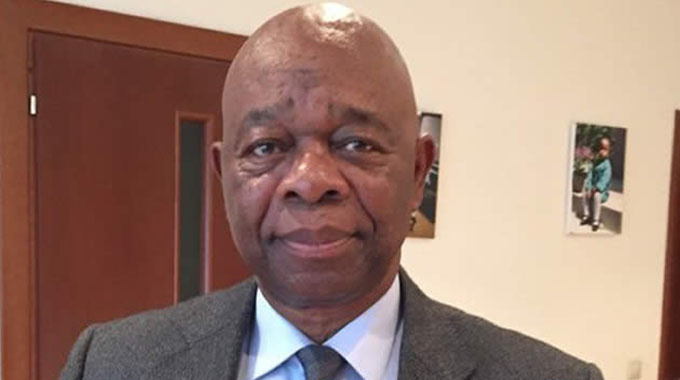Zim on green path: Official

Nyemudzai Kakore Herald Correspondent
There is an urgent need to address the impact of climate change which has resulted in successive droughts and other adverse weather conditions negatively impacting on the county’s agricultural sector, the permanent secretary in the Office of the President and Cabinet, Ambassador Boniface Chidyausiku, said last week.
Officially opening the 2018 Green Innovations Expo and Conference in Harare on Thursday, Ambassador Chidyausiku said there was need for transformative technology development as well as related trainings and awareness in the fight against climate change.
He said by 2030, the country should be moving on a green path.
The 2015 Sustainable Development Goals (SDGs) highlight climate change as a major challenge that threatens to derail global socio-economic development. SDG 13 states that there is an urgent need to address the impacts of climate change and the issue is treated as a cross-cutting theme in all the 17 SDGs,” he said.
“The Government of Zimbabwe is very much aware of the challenges brought about by climate change and the need to respond urgently. We need to address these challenges together, pursuing both local actions and collaborating with other nations across the globe.”
Ambassador Chidyausiku said the Office of the President and Cabinet was playing a central role in the implementation of the country’s Nationally Determined Contributions (NDCs) to the United Nations Framework Convention on Climate Change.
The office, he said, would ensure that the NDCs and climate change are mainstreamed into all socio-economic sectors through increased awareness, promotion and demonstration of practical low carbon solutions.
Transforming our economy and society requires the participation of all sectors and should be in line with the Government’s vision of making Zimbabwe an upper middle income economy by the year 2030, he said.
This means that poverty reduction and livelihood resilience should be at the centre of Zimbabwe’s interventions, research and innovations. The country should, by 2030, be moving on a green path.
Ambassador Chidyausiku said in promoting sustainable development through technology transfer and technology development in developing countries, Zimbabwe ratified the United Nations Framework Convention on Climate Change (UNFCCC).
He said under the 2015 Paris Agreement, Zimbabwe pledged to reduce its energy sector greenhouse gas emissions by 33 percent per capita.
This target will be achieved through renewable energy development, deployment and adoption, energy efficiency and climate smart agriculture interventions, he said.
“Over the years, local individual organisations have been crafting innovative solutions that promote clean development as well as conducting research on the best solutions in the Zimbabwean context.
UNDP programme analyst (climate change, environment and energy) Ms Sidsel Vognsen said UNDP remains ready to offer its advice and guidance to the new investment drive under the “Zimbabwe is open for business” agenda.
“UNDP recommends the need to follow responsible investments principles as we open the arena for investment across all sectors in Zimbabwe. By adopting responsible investment principles, all supporters of the green economy agenda in this room can be assured that their efforts to promote low emission pathways are safely defended elsewhere by other mechanisms and that sustainable development can truly be achieved,” she said.








Comments